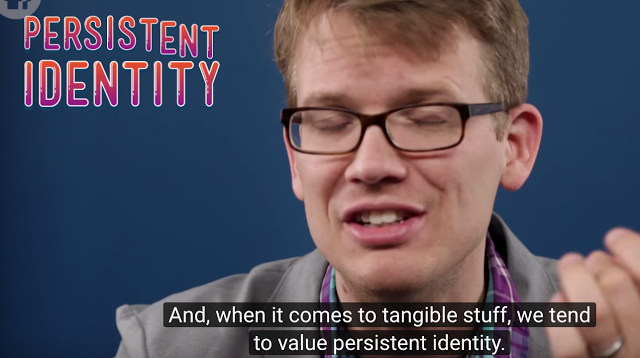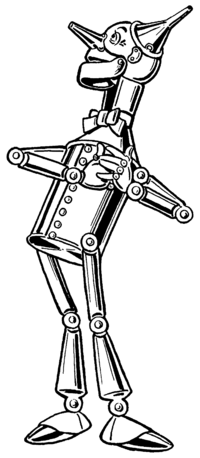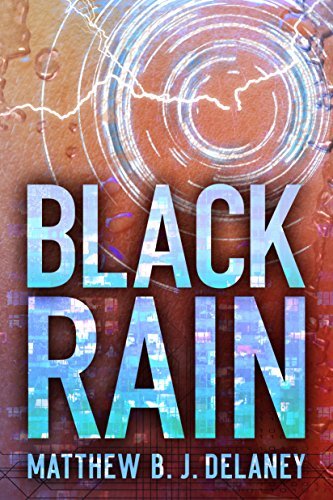Debate of the Week: Mind Uploading, Personal Identity/Survival and Copying People (w/ Sci-Fi recommendations)
Last Tuesday, Next Big Future gave their take on Keith Wiley's and Randal Koene's paper The Fallacy of Favoring Gradual Replacement Mind Uploading Over Scan-and-Copy.

In the paper, Wiley and Koene take on the detractor claim colloquially stated as “Even if scan-and-copy did work, it still wouldn’t be me, just a copy” with the argument
Mind uploading speculation and debate often concludes that a procedure described as gradual in-place replacement preserves personal identity while a procedure described as destructive scan-and-copy produces some other identity in the target substrate such that personal identity is lost along with the biological brain. This paper demonstrates a chain of reasoning that establishes metaphysical equivalence between these two methods in terms of preserving personal identity.
We were preparing a reply when, on Saturday, Next Big Future presented another post Identity, the Prestige and Mind Uploading that included several of the additional philosophical references that we had found (Plutarch's ship of Theseus -- although they overlooked Lincoln's axe -- and the excellent 2006 movie The Prestige) and attempted to get much more deeply into the concept of identity by discussing the philosophical points of essential and accidental properties. We thought that they were starting down the correct road when they discussed the value of persistent identity but they immediately went off-track by discussing it solely from the perspective of the individual.

To us, the critical cases to consider are when the scan is non-destructive and/or when multiple copies can be made with the same scan. You can argue forever whether the Captain Kirk that stepped into the transporter is the same individual as the one who materializes on the planet (see also Davidson's Swampman) but what does SOCIETY do when Will Riker re-materializes on *both* the Enterprise and the planet (or Kirk is split into a good half and an evil half and cannot be recombined)? Gradual replacement doesn't create the possibility of multiple copies -- scan and copy clearly does.
There is also the case where the new substrate is different enough (whether due only to the relative speeds between the old and new substrate -- or also due to the removal of all biochemical and other bodily effects upon the brain) that the personality will rapidly change post-transfer. In order to predict and trust, SOCIETY needs (at least) to see relatively stable personality and set of behaviors.
Clearly, the best analogy to uploading is the survival of Nick Chopper as the Wizard of Oz's Tin Woodman

And to understand just some of the multitudinous problems likely to be caused by copying (with varying levels of fidelity) or creating people, one really should to read or see any/all of
- David Brin's 2002 book Kiln People,
- Orphan Black, or
- the new Amazon Best-Seller Black Rain

Thanks for the article about the article about our paper. You mention nondestructive mind uploading as the most illuminating area of inquiry, but of course, Randal and I address the nondestructive scenario in the paper (I presume you read it and not just the Next Big Future article about it). Admittedly, we address it in the paper mostly by referring elsewhere (we were forced by in order to keep the paper within the journal's length limits), but presumably you followed those references before rendering an opinion on the matter--I sincerely hope so. :-)
Nondestructive scenarios are considered at great length in my book for example. Once one gets into the details of the available theories concerning the nature of metaphysical personal identity, one discovers that most theories fall into various paradoxes and failures of logical reasoning, which I take as an indication that they are erroneous theories and unlikely to reflect some sort of "truth". The theory that I find the most compelling, because it is the most resilient to paradoxes, is branching identity theory.
There are physical or body theories of identity, which fail on closer examination, as described by Derek Parfit in his 1984 treatise on identity. There are psychological theories, which in their simpler forms are also problematic (as also presented by Parfit). Then there are "closest continuer" theories, which are so bizarre, and suggest such peculiar conclusions, as to not consider further here. Then there are various physical continuity theories, often exemplified by the Ship of Theseus (which was originally presented without a conclusion mind you, rather as a kickoff to thought on the matter as opposed to some sort of argument toward a particular solution). Physical continuity theories ala the Ship are by far the most popular among new-comers to thinking on these question because they appeal to a sort of basic intuition, but intuition sometimes fails us; it isn't always right. In other words, intuition can just simply be wrong and therefore can't be our guide in search of truth. Since it falls into paradoxes in these cases, I suspect it is wrong even though most people find it appealing.
That brings us to a final set of theories, which basically consist of more complicated versions of psychological identity as presented by Parfit. These are the ones that seem to work the best in so far as they withstand the trap of paradoxes and also minimize the addition of arbitrary and seemingly unprovable "further facts" as plague the physical continuity theories (some identity substance must be binding the physical continuity of the Ship, which is hard to rationalize). The best of these more complex psychological theories is "branching identity", and it is the one I strongly advocate for in my own writing and discussions on this fascinating topic.
In all honesty, I really do recommend my book as a pretty good presentation of branching identity. That's why I wrote it after all. Alternatively, Michael Cerullo's paper (easily found online) is another excellent introduction to the very same concept.
Cheers!
This post has been linked to from another place on Steem.
Learn more about linkback bot v0.3
Upvote if you want the bot to continue posting linkbacks for your posts. Flag if otherwise. Built by @ontofractal